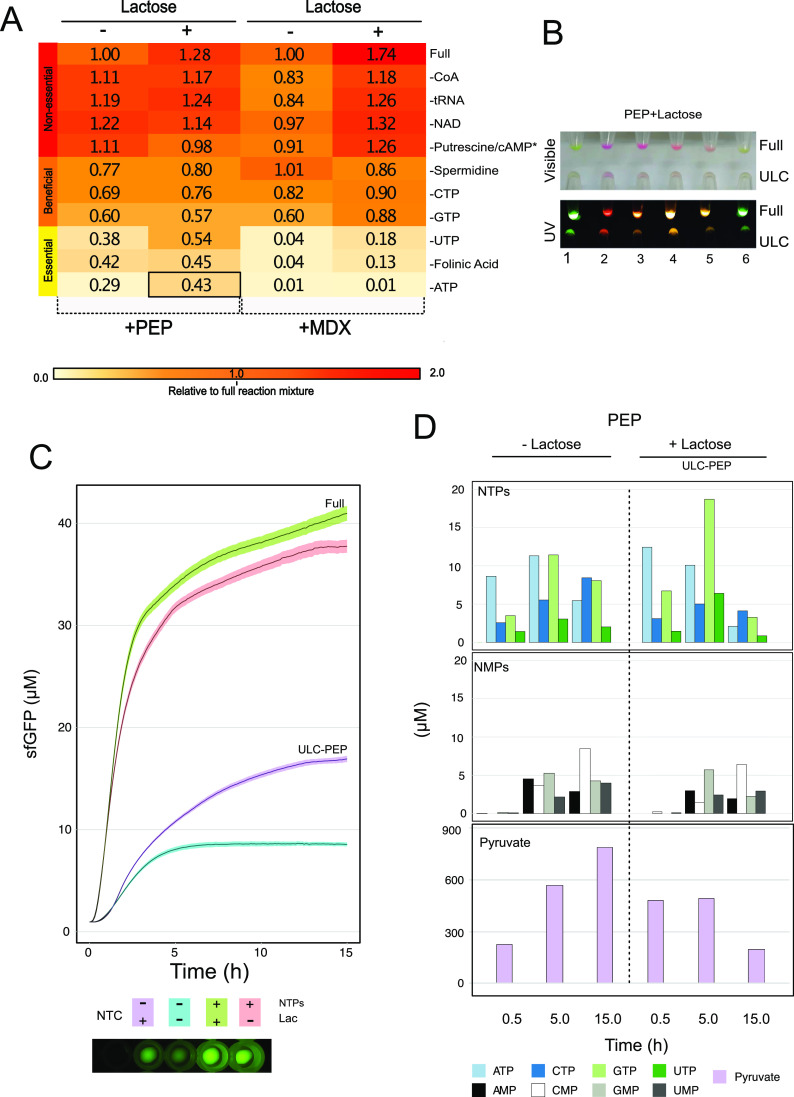Figure 5.
Ultra-low-cost (ULC) cell-free formulation based on PEP. (A) Relative levels of cell-free protein synthesis after the successive removal of reaction components according to Tables S7B and S8B. Every sequential row removes one more reagent in addition to those above it. Cell-free reactions were prepared with PEP or MDX as an energy source. The importance of additional components in the reaction buffers was tested by omission, starting with the most costly and less essential. The activities of the cell-free extracts were measured by sfGFP production and normalized relative to the respective full reaction (PEP/PEP complete reaction or MDX/MDX complete reaction). All measurements were based on three biological and three technical replicates. Relative level of protein synthesis for the ultra-low-cost (ULC) cell-free formulation is highlighted with a black square. (B) Synthesis of fluorescent proteins using the ULC cell-free formulation supplemented with 11.25 mM lactose (Table S13). Reporters: (1) psfGFP, (2) pJL1-eforRed, (3) pJL1-dTomato, (4) pFGC-T7-RibJ-mScarlet, (5) pFGC-T7-RibJ-RRvT, and (6) pFGC-T7-RibJ-mTFP1. (C) Quantification of sfGFP production in ULC-PEP formulation supplemented with 11.25 mM lactose. (D) Regeneration of NTPs, NMPs, and pyruvate during the cell-free reactions based on ULC-PEP formulation, measured by LC-MS at four time points. Samples were prepared as described in Table S13, replacing the indicated DNA with MQ water. Cell-free extracts were supplemented with 11.25 mM lactose, as indicated. Concentrations of nucleotides and pyruvate were measured by LC-MS.

